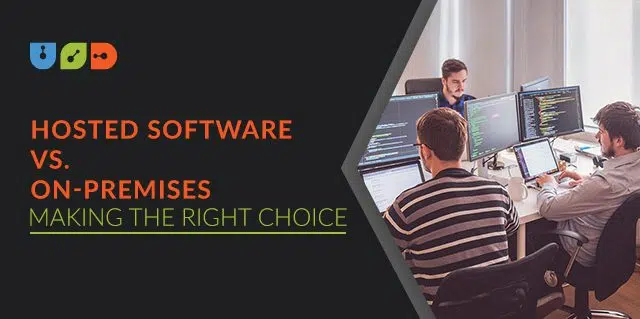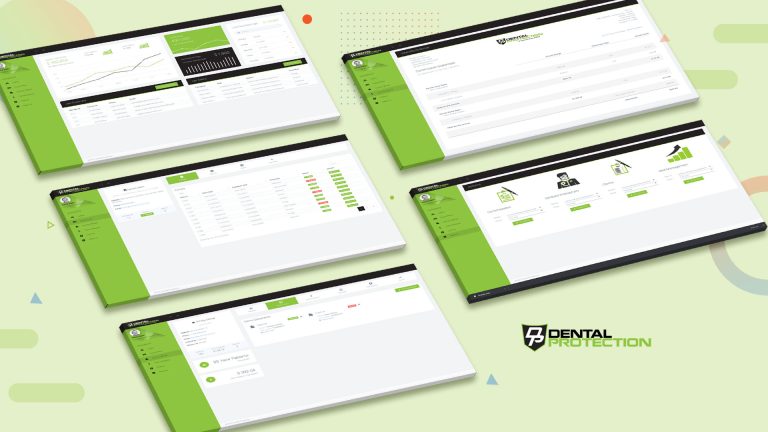Table of Contents
ToggleThe deployment model is a very crucial choice for most businessmen nowadays. It is not only important for the advancement of the organization but also for the evaluation of ERP software.
The first step of automation is to decide which type of software implementation you are hoping to use! Whether it is the traditional on-site implementation or remotely hosted.
First, let’s take a look at what hosted software and on-premises software is.
In the on-premises implementation, you take full responsibility for all aspects of the software’s operation. You obtain the network infrastructure, power supply, servers, operating system, database software, and any other essential elements required. Moreover, you are responsible for the maintenance, ensuring its continuous operation, security, and keeping it up to date. Following the purchase of a software license from a vendor like CAL Business Solutions, a Microsoft Partner, you proceed to install the software on your servers.
So, what is hosted software? It is software that is managed out of the premises and accessed by the workers through the Internet.
In the context of technology, “hosted” refers to solutions where external vendors take charge of managing and maintaining physical IT infrastructure in an off-site location. This encompasses various elements such as servers, data storage, networking, backups, and updates, among others.
In the Hosted model, similar to the on-premises approach, you acquire software licenses from a vendor. However, instead of purchasing all the hardware and infrastructure, you opt to rent them from the vendor or another third-party provider. The software remains under your ownership, but it is remotely hosted.
Considerations for Choosing Between On-Premises and Hosted Software Solutions
The choice between these options mainly relies on your company’s current state and the desired future direction of your organization.
If you have already established the necessary infrastructure and intend to retain it, opting for an on-premises deployment may be logical. Alternatively, if your internet connectivity is limited, on-premises remains the preferable choice. From the point of view of finance, On-premises solutions may only be suitable if your business has a substantial budget, as the associated technical debt from setting up and maintaining infrastructure can be significant.
In case you face challenges in maintaining your infrastructure, hosted software offers the advantage of keeping your existing software and licenses while utilizing servers and networks provided by another party.
On-Premises Software Implementation
In the previous discussion, we highlighted that open-source platforms like Magento could be hosted either on your own servers or by a third-party hosting provider. Let’s explore the advantages and disadvantages of hosting your website on your own premises.
Advantages of On-Premises Implementation
When you choose to host your website on your own servers on-premises, you have uninterrupted access to them. Additionally, you possess something tangible which may hold significance for you. Even if you opt for a third-party provider, you still retain considerable control over how your site is hosted. Here are some other reasons why self-hosting is preferred by some:
· Performance
You have the ability to optimize the performance of your servers according to your requirements. With the skills of your network and systems administrator, you can enhance performance precisely when needed. However, it’s important to note that performance also has its drawbacks, which we will discuss shortly.
· Control
You have complete control over your platform’s source code, allowing you to make necessary customizations and modifications. Of course, this is dependent on the skills and availability of your team.
Disadvantages of On-Premises Implementation
While self-hosting on your own servers or through a third party can grant you ultimate control, there are downsides to consider. For instance, when something goes wrong, the responsibility falls solely on you. Even when everything operates smoothly, you and your team must bear the responsibility of maintenance. Here are some specific disadvantages:
· Infrastructure
Although owning your own equipment might be exciting, setting up and maintaining the infrastructure is expensive and requires regular replacements or upgrades every few years.
· License Fee
Even if you host your website yourself, you will likely still need to pay a license fee to your platform. For example, Magento Commerce, even when self-hosted software, incurs a license fee that starts at $22,000 per year (according to Magento partners) for merchants with GMV below $1 million. As your business grows, licensing fees can increase, making scaling up costly.
· Performance
While you have complete control over the performance, you are limited by your own infrastructure or that of your hosting provider. Hosting providers have access to content delivery networks (CDNs), which are distributed networks of servers and data centers. This eliminates concerns about a server room flood disrupting your entire system. However, it’s essential to be cautious of choosing low-quality providers as they may not offer the reliability and security required for high-traffic needs. Proper budgeting is necessary if you require a dependable and secure system.
· Back-ups
In the event of a catastrophic failure of your servers, you must have a plan in place. With the on-premises model, you need to invest not only in infrastructure to handle daily needs but also in extra servers for peak traffic times or as backup solutions in case of emergencies. Even when everything is running smoothly, you must bear the cost of housing and maintaining these redundancies. If you opt for a third-party host, it is crucial not to compromise on quality by choosing a cheap provider, as they may not offer the necessary backups in case of emergencies.
· Security
In addition to the above concerns, you are responsible for the security of your site. While your e-commerce platform may provide security patches and updates, it is up to your system administrator to install and configure them. Missing even a single update could put your system at risk. Neglecting security measures can also result in non-compliance with PCI standards, leading to potential fines.
Hosted Software Implementation
If you think your organization is not well suited for the in-house application, the subsequent choice is cloud-hosted implementation. This implies that your platform offers an option for cloud hosting. You might also come across terms like Platform-as-a-Service (PaaS) or Infrastructure-as-a-Service (IaaS) when discussing this, as the tech community loves its hard-to-pronounce acronyms. IaaS and PaaS refer to cases where your platform includes hosting as part of the overall cost, and they are not the same as SaaS.

Essentially, cloud-hosted software enables you to outsource the hosting of your site to your platform while still retaining some control and maintenance responsibilities, as opposed to an open-source system.
Advantages of a Hosting Service
Cloud hosting provides a useful middle ground where you give up some control but keep access to the source code for your platform. Here are some other reasons why you might opt for this choice.
· Cost Reduction
By eliminating the need to bear the expenses of purchasing, maintaining, updating, and replacing your own servers or relying on a third-party hosting provider, you can realize substantial cost savings. However, it’s important to keep an eye on the cost because as your business grows and site traffic increases, you may require more bandwidth. While most PaaS platforms offer flexibility in case of anticipated traffic spikes, they do not provide unlimited bandwidth.
· Limited Support
You will receive support from the hosting service provider if any issues arise. However, there are certain limitations to this support. You have priority support in the event of a major outage, but it’s essential to carefully review the terms and conditions of your contract with the hosting provider to determine the extent of coverage. You don’t want to find yourself in an emergency without assistance.
Disadvantages of a Hosting Service
Opting for a third-party hosted software provider may appear as the optimal choice between on-premises and SaaS alternatives, but it is essential to take into account potential disadvantages as well.
· License Fees
Similar to on-premises hosting, you will incur a licensing fee for your software in addition to hosting-related expenses. For instance, with Magento eCommerce, their cloud-hosted apps include the hosting cost as well as the software cost, which can quickly add up. Based on feedback from the Magento ecosystem, the costs of Magento Commerce with hosting can start at $40,000 per year.
· Performance
While having a content delivery network provided through a hosting service can enhance performance, you will have less control over the servers. It becomes less convenient to customize them according to your specific business needs and requirements. You may have the option to collaborate with your hosting provider to optimize performance, but additional costs may be involved.
· Security
Even though your platform takes on the responsibility of hosting, it doesn’t imply that they handle security on your behalf. You are responsible for ensuring your own protection, keeping up with security patches, and maintaining PCI compliance.
Because you still have access to the source code, employing hosted apps with a PaaS or IaaS deployment can be a suitable choice when you want to use open-source software and have a preference for collaborating with a single vendor for your hosting needs. However, you will still need to manage your own security and updates.
Making the Right Choice
When making a choice between on-premises and hosted software, it is essential to consider multiple factors. Accessibility and connectivity are advantages of hosted solutions, providing remote access for dispersed workforces. Operating costs favor hosted solutions, as providers cover hardware, maintenance, and support expenses. However, on-premises systems require a significant upfront investment but may result in long-term savings. Hosted solutions facilitate business scalability, allowing easy adjustments to storage and services. Disaster recovery benefits hosted solutions with data protection and off-site backups. Data security and reliability are typically stronger with hosted solutions due to robust third-party security measures. Control over infrastructure and customization favors on-premises systems, while support and IT personnel responsibilities vary between the two options. Integrations are easier with hosted solutions, although on-premises systems may require custom-built solutions. However, one of the most crucial determinants often revolves around the ability to exert control over resources and infrastructure.
Hosted software plays a significant role in facilitating digital transformation, providing companies with flexibility, cost savings, and enhanced capabilities. Nonetheless, it is important to acknowledge that they may not be suitable for every industry. Organizations operating in highly regulated and security-sensitive sectors, such as government, banking, and defense, are unlikely to prefer storing their data outside of local servers due to stringent compliance requirements and concerns about data security.
Therefore, it becomes imperative to thoroughly assess your organization’s specific needs, priorities, and financial resources before selecting new applications. It is conceivable that a combination of on-premises and hosted solutions may be the optimal approach. This approach strikes a balance that best aligns with your requirements.
By carefully evaluating the trade-offs, you can determine which aspects of your infrastructure and data management are crucial to retaining control internally and which can be effectively outsourced to reliable and secure hosted solutions.
Conclusion
Ultimately, the decision should be based on a comprehensive analysis of your industry’s regulations, security considerations, operational needs, and long-term business objectives. By finding the right balance between on-premises and hosted solutions, you can establish a robust and adaptable technology ecosystem.
But we can’t deny the fact that hosted software continues to be a popular and trendy choice in the modern business landscape. The flexibility, scalability, cost savings, and enhanced capabilities offered by hosted solutions cannot be denied. They align with the evolving demands of remote workforces, global connectivity, and dynamic business environments. Embracing hosted solutions allows organizations to stay at the forefront of technological advancements, leverage the expertise of third-party providers, and capitalize on the latest innovations in cloud computing. If you want to develop custom software, then contact us today




























